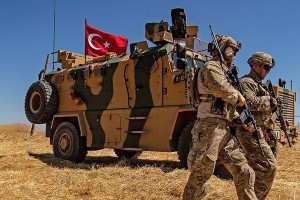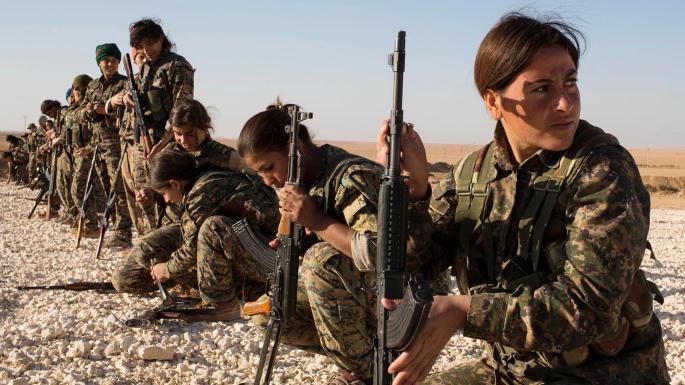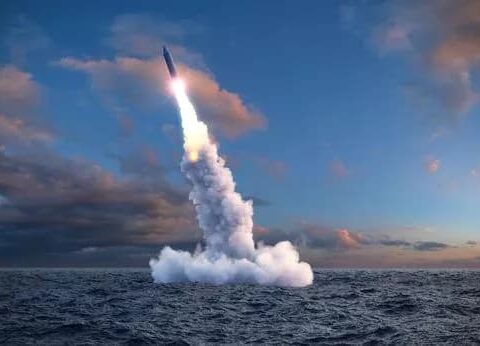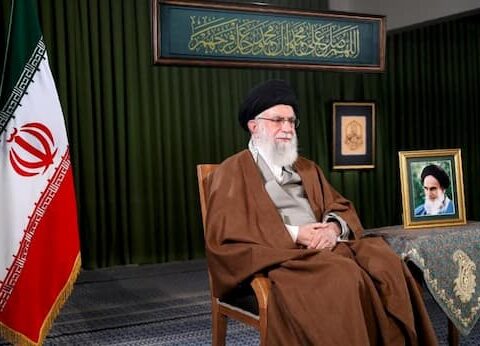Last week, for the first time since the start of the War in Syria, Turkish forces, backed by the United States, crossed the Syrian border and openly intervened against so-called ‘Islamic State‘ forces with heavy artillery strikes on the city of Jarablus (controlled by ISIS), which is situated on the Turkey-Syria border and on the banks of the Euphrates.
On 24th August, a rag-tag of Syrian ‘opposition groups’ led by Turkish special forces (and Turkish tanks) entered Syria and soon captured the city.
The Syrian government in Damascus condemned the action as a flagrant violation of sovereignty: which is precisely what it is. For all intents and purposes, the Turkish military just invaded Syria in tanks and is answerable to no one.
Given the Turkish state’s recent track record, it seems less likely the primary motive was to fight ISIS and more likely that the incursion is aimed at inhibiting Kurdish aspirations.
Under a day later, the US demanded that the Kurdish-led Syrian Democratic Force (SDF) leave Manbij – a town the Kurdish fighters had only recently captured from the so-called Islamic State group. As the International Business Times puts it, ‘the US took the strategy it itself initiated, nurtured and supported, and dumped it into the trash.’
It continues, ‘the Turkish intervention in Syria seems to have change the US’s “inherent resolve”. Gambling away its only remaining ally in the war-torn country, the US is realigning its strategy with Ankara, at a time when the relationship between the two countries has never been worse.’
The utter chaos that has been created in the Middle East from 2003 onward has now led the United States to a situation where it is literally incapable of finding any strategy that makes sense: because all there now is an utter quagmire in which a dozen or more parties are in it for their own interests and no even knows what the common good is anymore, let-alone knowing how to pursue it.
Washington’s ‘strategy’ doesn’t just appear a mess – it appears non-existent. Within more or less a day, the US went from scrambling jets to protect the Kurdish forces from President Assad’s air-force in the city of Hasakah to demanding the Kurds leave Manbij – a town that Kurdish fighters, backed by US planes, had been fighting (and laying down their lives) to capture in the last several months.
The US appears to now be accommodating Turkish interests at the expense of its Kurdish allies: the interests, at that, of a Turkish government that it has also just been accused of trying to overthrow.
Meanwhile Turkey – which is becoming an even more confusing state than Syria – appears to have pivoted away from the United States and has recently mended fences with Russia in order to become more directly involved on the ground in Syria (which, remember, was always part of the plan for invading Syria – except Turkey was supposed to be acting as a NATO member in that regard) supposedly for the sake of fighting the Islamic State (you know, the same Islamic State that Turkey has been aiding and doing business with).
But is Turkey really fighting the so-called Islamic State or just continuing to use IS as a cover for suppressing Kurdish aspirations? That is after all what it was doing before – conducting airstrikes against Kurdish groups under the guise of bombing IS targets.
This wouldn’t be the first time that NATO-member Turkey has used a foreign war as a cover for pursuing its own agendas against Kurdish interests. US President George W. Bush and Recep Tayyip Erdogan had also colluded under cover of the illegal Iraq War. With full logistical support from the United States, the Turkish army had used the Iraq chaos to carry out attacks against members of the PKK (Kurdish Worker’s Party) in Northern Iraq.
It is of note that the Syrian-Kurdish YPG forces were reported to have been advancing on Jarablus themselves following their military victory over IS in Manbij just prior to Turkey’s sudden incursion: and so, in effect, Turkey’s incursion ‘against ISIS’ has prevented Kurdish militias from taking Jarablus.
There are also suggestions that the Turkish government had been wanting to militarily intervene in Syria for some time, but had been encountering resistance from within the Turkish military: but that the recent purge of the military (in the wake of the ‘failed coup’ attempt) has allowed the government to push ahead with its plans.
The head of the Syrian-Kurdish forces, Salih Muslim, claimed before the operation that Turkey was still backing jihadists in Syria. “Turkey is also trying to activate terrorist groups like al Qaeda in Syria, which are celebrating the beheading of children in Aleppo,” he said.
The YPG has in fact accused Turkey of continuing to support ISIS while the YPG-linked Syrian Democratic Forces (SDF) were fighting the jihadists in Manbij – the same town Washington has just told them to vacate after having captured it from ISIS. They allege that hundreds of foreign mercenaries and fighters continued to enter Syria through the Turkish border during the fighting – just as has been going on for years now.
Turkey has become virtually a rogue state, invading where it pleases, attacking where it pleases, and doing whatever it wishes both at home and across borders. But in this, it is only following the example already set by the United States, France, Israel and others, who have already disregarded international law and sovereignty in Syria.
In terms of Jarablus, Turkey of course has some justification in seeking to protect its national interests so close to the border (although not the right to send tanks and military into Syria against the wishes of the Syrian government); but let’s not forget the key role Turkey has played in facilitating the bloody conflict in Syria in the first place, in which Turkey has shown no respect for Syria’s national interest or sovereignty.

Violating another country’s sovereignty in order to protect your national interests isn’t how international law works.
But again, to be fair to Turkey, it simply among multiple other nations breaking international law and violating Syria every day: respect for sovereignty appears to very much be dead.
Now, having spent years – along with Washington, Saudi Arabia, Qatar and co – aiding terrorists in Syria, Erdogan’s government has suddenly decided it wants to fight some of those terrorists (while still collaborating with groups considered terrorists by Damascus in order to do so). And amid all of this, a government that has worked with the worst terrorists insists the PKK is a terrorist organisation that it has every right to go after, even in someone else’s country.
The Turkish government has always been entirely opposed to any move towards Kurdish autonomy or independence and sees Kurdish activity in Syria and Iraq as a threat to its own interests: it has been consistent in that position all along. Therefore, Washington should have perhaps foreseen the problems that would emerge if it supported groups that its own key ally (and NATO member) considered a threat.
The problem in this scenario is how ridiculously complicated it has become.
It is quite obvious that at this point in time any plans to create an independent or autonomous Kurdish territory would unfold as part of the well-known plans to federalize Syria and carve up Israel’s Arab neighbors into smaller, less powerful mini-states.
This was a plan – originally covert, but eventually overt – originating in Israel, but adopted by Washington (and which Hillary Clinton’s leaked emails reveal she was very much privy to).
It is a plan that is rejected by most Syrians; and moreover, given its corrupt, cynical origins, and the bloody, vicious means employed to bring it about, it is a plan that would be rejected by most moral people.
When Syrian Kurdish representatives recently declared a federal Kurdish region in Syria, the Assad government would’ve legitimately seen it as a move towards the aforementioned federalisation of Syria and Balkanisation of the region – which it rejects outright, seeking only the survival of a complete and sovereign nation of Syria.
The Turkish government, which clearly doesn’t care about Syrian sovereignty, nevertheless shares this opposition to Kurdish independence: and must’ve assumed its own invasion of Syria to thwart Kurdish maneuvers would be welcomed by Damascus.

Unfortunately, none of that helps the Kurds, who have been used and who have laid down their lives on the front-lines against ISIS.
Where members of the Washington-backed and mostly Shia Iraqi Army famously fled at the first sight of ISIS forces back in 2014, the Kurds stood their ground and confronted the so-called Islamic State fighters wherever they could.
But Washington in essence appears to be throwing its only remaining ally in Syria under the bus: and at a time where the other involved powers appear to have doubled down to protect their own allies – Russia and Iran protecting Assad and the Syrian state, with Turkey and Saudi Arabia protecting their jihadist militias.
The Kurdish fighters in both Syria and Iraq have been Washington’s most reliable ally on the ground. They are also the only Washington-backed group in the Syrian conflict who can genuinely be described as ‘moderates’ and even progressives (unlike all of the other US-backed militias, which are nothing of the sort).
Yet, curiously, while the US continues to try to propagandise for (and making excuses for) its Saudi-backed jihadist groups in Aleppo, a cynical maneuver by Turkey is all that was needed for the Kurdish fighters to be disavowed.
________________
It is the Kurds that have done most of the fighting and dying on the ground in the West’s fight against ‘ISIS’ (‘ISIS’ being an organisation grown out of US wars in the first place and supported and nurtured by several governments and intelligence agencies); but they may be awaking to the reality that they’re not going to gain anything from all of this, other than having been an expendable pawn in a Middle Eastern conflagration that they didn’t create.
Often when I mention the Kurds, some people question me on it, reminding me of the ‘Yinon Plan’ and the aforementioned scheme to carve up the Arab world into tiny, weak pieces, which the move for Kurdish Independence would be a central part of.
The mistake, however, is to inextricably link Kurdish Independence with the ‘Greater Israel’ idea or the Balkanisation plan as if the two things could never exist apart.
A Kurdish desire for independence of course exists and existed prior to and independent of any cynical international ‘plan’ to Balkanise Syria and the Middle East.
This didn’t originate with Zionist policy-makers or journalists or in Washington: but in the consciousness and desires of Kurdish people.
The Kurds have been a marginalised and oppressed people in more than one country. Comprising some 26 million people, have been scattered across Turkey, Iran, Iraq and Syria, spending the last century a dispersed people without a homeland and repeatedly facing brutal oppression.
It is written that a century or so ago, during World War I, the Kurdish rebel leader Mahmoud Barzanji used to carry with him a copy of Woodrow Wilson’s ‘14 Points‘, drawing such inspiration from America’s history of self-determination.
But again the Kurds have simply been used as pawns in a geopolitical scheme in which they were bound to play their part: a part that they appear to have played with goodwill. But many among them might’ve sensed all along that they would be let down by their foreign sponsors in the end.
Abandonment of the Kurds, after all, appears simply to be a cyclical element of history.
Among other incidents in the Middle East in the past century, Iraqi Kurds had been encouraged by the George Bush Snr administration in 1991 to rise up against Saddam Hussein’s regime; but the American regime didn’t provide any of the support it had promised them, US troops never came, and thousands of Kurdish villagers were reportedly slaughtered, with millions of Kurds having to flee in a mass exodus, some 1.5 million of them to Turkey.
Before the First World War, the British Empire had already tried to utilise the Kurds against the Ottoman Turks in order to secure British control of oil-rich provinces (such as Mosul in Iraq). But the British and other imperial powers backed out of implied (as in never made into written promises) agreements with the Kurds (for their independence), just as they had done with the Hashemite Arabs who’d done the majority of the fighting on Britain’s side in the Arab Revolt.
Fast forward a century and they are once again canon fodder in other peoples’ wars: and have once again fought and suffered on the front lines, but are looking increasingly unlikely to be rewarded, as the governments in Turkey, Syria and Iran – albeit for different reasons – appear entirely unwilling to accommodate any moves towards more Kurdish independence.
And with the Americans – who relied so heavily on the Kurds to fight ISIS – possibly abandoning them, there remains a possibility that they will be subject to even harsher crackdowns not only in Turkey but in other lands too.
It is therefore perhaps unsurprising that Syrian Kurdish authorities appear to have recently been turning away from Washington and towards Moscow. Which raises interesting questions about what Kurdish autonomy would look like if aided by a Russian foreign policy that is entirely committed to the preservation of the Assad government and a sovereign Syria.
Perhaps that’s the approximate direction that the ‘common good’ might be found in. But the whole situation now is too complicated to able to say.





Oh thank you. Interesting and also comes to answer to facts that are currently happening.
Hey, just to let you know, Neilly: I’ve been trying to leave comments on your website, but I can’t see them showing. I don’t think they’re posting.
If I have to accept them because sometimes I have strange messages.
(I even click on sent links that take me back to shocking sites)
And it seems me that I passed all yours.
Thanks
Amazingly informative… thanks for taking the time to research and write this piece. If you recall that when ISIS was seemingly invincible and brave Kurd’s (mostly women fighters) fought the decisive battle for Kobane; at that time the US chose to side with the PKK (even against Erdogan’s very strong and very vocal public objections). Interestingly, at that time, when the US provided a small-arms drop for the PKK forces, part of the drop fell on SISI (pun intended) controlled parts of the city. Then after the battle of Kobane was won, Turkey was permitted to perform air strikes into Syrian territory against PKK ‘hideouts’ and suicide bombings took place in Kobane, Turkish border cities and Ankara that, conveniently for Turkey resulted in high PKK body counts.
Also, during one of the Turkish air attacks into Syria, US forces that were training ‘moderates’ complained that the air strikes were taking place too close to their training grounds. These incidents were to set the tone for all US supported Syrian and ISIS opposition and the US’ ultimate allegiance to it’s Incirlik host and NATO ally, and spelled out to the lesser groups that today you are an ally and tomorrow you will be a target. Understanding that makes it clear that US was and is playing all the factions with no lasting allegiance to any group – possibly not even it’s NATO ally in the region which eventually led Recep to return to a previous lover.
Interestingly, Russia has also played a similar stance to the US, though less openly, when it demanded that, by then disgruntled, Kurds be included in the first round of peace talks even at the antagonized Turkey’s objections. At that time Putin was just seeking every opportunity to goad Erdogan, but now we must recognize that as Russia and Turkey kiss and make up, that Putin’s green light to Erdogan to attack the Kurds in his Assad ally’s backyard is a demonstration that a Turkish alliance is the true prize to be sought in the region, especially among all the other decimated victim’s of Yinon’s plan.
It is also amusing to note that it was during the recent meeting when US Vice President Joe Biden was courting Turkish President Erdogan that ‘Dogi’ gave the order to begin unilateral cross border attacks against his Turkish foes in Syria. It is also likely that the US was then forced to take a diplomatic step to cock block Putin’s exclusivity with Turkey by putting their money where their mouth was and immediately publicly ordering Kurdish forces back across the Euphrates (not that such a betraying move to the Kurds gained the US the desired points with Turkey but the Obama Administration has been grasping for opportunities to regain stture with Turkey since it was, at the very least, guilty by association in the recent Turkish coup attempt).
At present, Erdogan’s Turkey is ‘torn between 2 lovers’ but also sitting cherry as Russia and the US spar it out for her frigid hand in their respective love-hate relationships. To retain the allegiance of the 2nd largest standing army in Europe is a well sought after gem for NATO; likewise, for Russia to have the allegiance of the second remaining powerful nation in the Middle East is a nightmare gone bad for US foreign policy makers.
Erdogan can now gloat on high ground over his centralised power at home and his apple of my eye status abroad, he holds a unique in control and ‘best of both worlds’ status sort of like Tito held in Yugoslavia during the Cold War. Hopefully for Dogi, it won’t come crumbling down if he were to be suddenly removed like occuredin Yugoslavia, and then Turkey become ‘Balkanized’.
And it’s a shame that a gloating Erdogan is such an unappealing sight too.
Thanks: that’s a lot of interesting thoughts and perspectives – enough to constitute a whole article in itself.
Hi again my Earthling friend! First of all, we all know that Syria is becoming more swamp day by day. Every military attempt is making on the behalf of destoying to the terrorist organizations. Yes, main stream media says like that:) Some of them is true, but many of them can be questioned. While world public sees the bombing and the other brutal screens, obviously noone can remember how and why these events began. Or maybe very few minority could give a name to this war.
As an extraterrestrial, for me, this war has begun due to two reasons. One: To create the land of “great zionist Israel country”, accordingly to supply the water ways. Two: West become more close to Russia.
Now, let’s we talk about your post:)
The Times link that you gave into this line: “As the International Business Times puts it, ‘the US took the strategy it itself initiated, nurtured and supported, and dumped it into the trash.’.. When we read this article at this link, we see the strategic Tishrin Dam along the Euphrates. Yes, they are giving this dam name as very tiny information inside this article, but my opinion is the most important part of this last subject is this dam. Because in Syria there are 11 dams.(if I am not mistaken). Only Tishrin Dam is northern Syria and inside the war zone.
If some ones wants to create a new country at Middle East, they need water vitally. There is very few fresh, useable water sources in this region. Who captures the dam zones they will be winner at the region.
And this Tishrin Dam can be element of oppression against the both Syria and Turkish state’s; but mostly for Syria state. Because, after the Tishrin Dam, there are three dams on the Euphrates river belongs to Syria lands towards the south; they are Halabiye, Tabqa Dam and Baath Dam. If the production capacity of Tishrin dam would be increased, it will decrease the efficiency of the other three dams. Because the Euphrates River is born from Turkey. The power of the water flow and flow rate will depend on the production of the first dam on the Syria territory. I think, kind of this possibility would be a vital risk that can not be taken by the Syria government.
Currently imbalance, even if the power of anti-Assad dissidents (Free Syrian Army) are rising in the region, the corresponds of this state does mean is to give permission to the joint Kurdish-Israeli state in northern Syria. This is the second article that I said at the beginning, which means accepting the west would come more close to Russia. And this is unacceptable thing for Russia!
There is really mess in here, but it seems that USA elites always are in a win-win situation. The issue is not Turkey in here my Earthling friend. For example you have said that “With full logistical support from the United States, the Turkish army had used the Iraq chaos to carry out attacks against members of the PKK (Kurdish Worker’s Party) in Northern Iraq.”
USA governments have been always supporting the PKK terrorist organization for decades. This is a information that under record. Turkey General Staff, made a statement about the origins of the weapons of PKK, a result of operations carried against PKK. According to this explanation, according to data of 2013, PKK killed 35 thousand 576 Anatolian people (into this number there are the Kurds and Turks and the other ethnics, also there are babies and olders) in last 30 years with the heavy and small weapons which PKK received from America to Germany, from China to Italy, from England to Spain, from almost each arms dealer country. Yes, these figures in 2013, now this number probably reached up 38 thousand people. Consider a country my Earthling friend, during 33 years nearly 38 thousand citizens-soldiers and civilians- have been killed by a terrorist group. Almost every arms dealer country in the world supplies its arms and aids to these terrorists. In addition, 386 thousand 360 people moved to west Anatolia from the southeast and eastern Anatolia. Yes, they left the own houses! So, PKK actually had made worse evilness to the Kurdish people on Anatolia!
And then tragedy, this terrorist group is being touted as the freedom fighters. Why? Because of they chose a name “worker’s party”? Is there any “worker party” which takes support by USA military and government scale on this planet, except PKK? This is a tragedi! I am a communist extraterrestrial, and I am in shock in every time I see this hypocrisy of the world public!
And this terrorist organization gave a birth with a name of YPG. As if one of them wasn’t enough trouble for Anatolian people! Also they are touted as freedom fighters again. All matters they are fighting against ISID. But who create the ISID?: CIA created. Who created YPG?: USA government-military created. Does not anyone see this dilemma in here?
One from inside, the other from outside tries to crash the region’s ties. This situation can be used for directioning of the public intents from inside and any government can use this situation for gaining vote. That’s why system is corrupt in everywhere on this planet!
I have written these because I want the people understand how the Anatolian people mental health. They have seen the death for last 35 years under a nameless war. In almost every neighborhood in this country, a person died because of the PKK terrorism last 35 years. If there was a figure about 38 thousand people killed in any country of the planet, maybe people can empathize with Anatolian people. If there was 386 thousand 360 people who left own houses -kind of immigration in own country- maybe people can empathize with Anatolian people.
But if the people want to empathize with Anatolian people…
In here I want to mention about the differences between Kurdish people. There are very big differences between the Iraq Kurdish, Anatolian Kurdish, Syrian Kurdish, Iranian Kurdish and also Russia Kurdish. Anatolia has become a land of many ethnics. You cannot see this variety into any region at Middle East. For example the question in here should be:
Why 386 thousand 360 people moved to west Anatolia from southeast Anatolia due to PKK terrorism, instead of another foreign country?
This is important. Anatolian Kurdish people don’t choose any foreign country to live. They stay inside Turkey, when they left their homes at southeast Anatolia. But you cannot almost see same situation in the other countries of Middle East where Kurdish people live.
But world people don’t know too much about the region’s people. When talk about “a” ethnic” they accept all the same of this a “ethnic”. Also it can be “b” or “c” can be accepted as same in all region.
Why I am writing this? Because I always appreciate your approach over the separating the events and their responsibles. For example, I am observing you are trying to indicate difference between the people and the governments. I am trying to do too. for example, I am trying to write always, “USA government,” with separating from the people of USA.
You have said that “A Kurdish desire for independence of course exists and existed prior to and independent of any cynical international ‘plan’ to Balkanise Syria and the Middle East.”
In here most Anatolian Kurdish people wants to answer of “why the foreigners want from me to leave my country, Turkey?”
Most of them is thinking different from the other Kurdish people at the other countries, my Earthling friend. And this otonom independence idea hurts to most of them. I hope I could tell what I meant.
Besides yes, independence idea is old, but the issue has never been Kurdish independence state. Do you know how old the “greater Israel” idea? It started in 10th century in formal. Also you know I am sure, it is being said in Torah “from the river of Egypt to the great river, the Euphrates are our promised lands” in last 2000 years;)
Yes, this is huge lands that they claimed as promised lands, almost bigger from the Iran lands of todays!
And thank you for your time and patience until you came these lines, my Earthling friend 🙂
Thank you very much, Migarium, for providing so much. What your comment demonstrates is how complicated, confusing and how much of a mess, this situation in Syria and the Middle East has been allowed to become.
As you kindly notice, I try on this site to be objective and to not take sides, while trying to reach an understanding about what is going on. Which isn’t always easy: because there is so much information, bias and propaganda being pushed by different sides.
It is therefore always good – and welcome – that you come to challenge me on different points and provide an alternative point of view, especially as you have a lot of information and perspective.
My own understanding – and all of our understanding – has limits. But if we fill in each other’s gaps in understanding, while debating honestly, we probably come the closest we can to a true perspective.
You are definitely right, my Earthling friend with your words: “My own understanding – and all of our understanding – has limits. But if we fill in each other’s gaps in understanding, while debating honestly, we probably come the closest we can to a true perspective.”
And we don’t feel too much comfortable as the extraterrestrials when talking with the humans. Yes, racism of human is over of the limits:) But your blog is a place where I don’t feel feel like a outsider when I made comment:) Because I see your sincerity. And thank you for your kind words!
I’m glad you feel welcome, friend. I like to think of this place as a space-station for all races (like a Deep Space Nine or something). And, hey, we’re all extra-terrestrials, aren’t we? I mean, we all evolved from stuff that came from outer space, didn’t we?
Like Carl Sagan said, all we are made of star-stuff. Both extraterrestrails and earthlings:)
I’ve been following the Iraq/Syria situation on a daily basis for years. This blogger has more understanding of the situation than all main stream media reporters (what’s actually the diff between bloggers and reporters…) combined.
I have taken the notes from your post, I will write comment tomorrow or day after tomorrow:) Yes, time is too late in here I don’t want to make a wrong comment, also as extraterrestrials -this can be surprised- we need a sleep, my Earthling friend:)
Starting a war is relatively easy …
Difficult and painful it is to end it ….
Agree; starting wars, as we’ve seen, is incredibly easy.